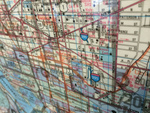Long before Cancún was a glimmer in some computer programmer's eye, all roads led to Mérida. The great "White City" -- still the region's cultural heart and soul -- presided over a peninsula rich with legacies of colliding civilizations. The trove of ancient cities left behind by that cataclysm has enticed visitors ever since New York writer John Lloyd Stephens and illustrator Frederick Catherwood ventured south to investigate rumors of lost cities in the jungle.
The splendors of the ancient Maya world are still the Yucatán's biggest draw beyond the Caribbean coast. Chichén Itzá, every bit as wondrous as its coronation as a "new" Wonder of the World suggests, has many worthy companions. Uxmal, Edzná, Cobá, Calakmul, and several smaller ancient cities are still infused with a quiet, ancient spirit that seems to be losing ground daily in the glare of Chichén Itzá's celebrity status.
The thoughtful visitor, though, will soon learn the Maya heartland is far more than a living museum revealing an extraordinary culture -- it is the evolution of that civilization. Whether you stay in a restored hacienda and indulge in a massage from the granddaughter of a Maya shaman, attend Mérida's weekly Vaquería with traditional Yucatecan cowboy music and dancing, or visit a village whose people live in thatch-roof huts and still speak the Yucatec Mayan language, you'll find past and present converging as they do nowhere else.
The best way to see the Yucatán is by car. The terrain is flat, highways are well maintained and hypnotically straight, and traffic beyond the cities is light. Secondary roads are narrow and sometimes rough, though a flurry of road projects has improved a good percentage of them in the past couple of years. Add about 30 percent to the time you think any particular trip should take -- not only will you miss a lot by speeding through, you will also run afoul of innumerable topes (toh-pehs), or speed bumps. These might be a rope across the road, a concrete island, or a row of metal half-spheres that will eat your undercarriage for breakfast. Most have warning signs, but sometimes they appear out of nowhere -- or the signs might appear but the topes do not. You will slow down, either to ease over the topes or to ask around for a repair shop.
Renting a car isn't cheap, but some promotional deals are available, especially in low season. And some of your most memorable experiences will be in places not easily reached by bus. Plenty of buses serve major towns and ruins, but service to smaller towns and ruins, and the haciendas, is sparse. Autobuses del Oriente (ADO) controls most of the first-class bus service and does a good job with the major destinations. Second-class buses go to some out-of-the-way places, but they make countless stops and often aren't air-conditioned; they are best for short distances. If you don't want to rent a car, a few tour operators take small groups to more remote ruins, cenotes, and villages. Alternatively, hiring a taxi for a half- or full day can be less expensive than renting a car.
The Yucatán is hot country; always travel with a hat, sunblock, mosquito repellent, and water. November to February are the coolest months; April to June the hottest. Thunderstorms moderate temperatures from July to October. More tourists visit the interior in winter, but the high season/low season distinction is far less pronounced than on the Caribbean coast.
The Best Websites for the Yucatán
- Yucatán Today: www.yucatantoday.com -- One of the least commercial privately run sites, with cultural notes; detailed maps; transportation advice; history; and lists of hotels, restaurants, and events in Yucatán state and beyond, by the editors of an enormously helpful monthly tourist magazine.
- Yucatán Living: www.yucatanliving.com -- Destination and cultural articles, and in-depth reviews of restaurants and attractions give visitors an inside view on life in Mérida.
- TravelYucatan.com -- Loaded with practical tips and detailed articles by travelers and residents, news roundups, and useful graphics such as photos of authorized taxi cabs and dive-site maps. You might not notice that it's also a booking site until you go to the "accommodations" link.
- Yucatán Travel Guide: www.yucatan.travel -- Yucatán's Ministry of Tourism site, which has an update section and good general information on the state's destinations, activities, and services.









